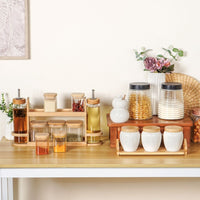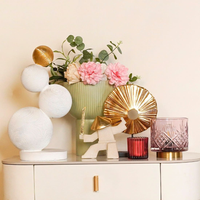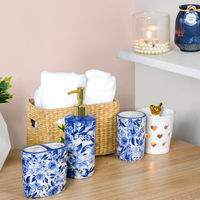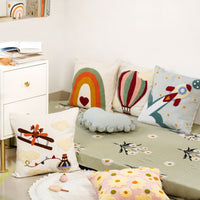In today’s fast-paced world, people have become so busy that they have lost touch with themselves. We invest so much in the uncertain future that we let the present slip by, without a moment of acknowledgement, without a moment of self-reflection.
Exposure to pop culture, social media, and materialism are some of the key factors that leave people unsatisfied with themselves. In order to get over their unhappy lives, people have started to take comfort in momentary pleasures, such as debauchery, rather than diving deep into themselves, and doing what’s better for their mental and physical wellbeing.
To talk about overall wellness, we must take into account that our physical and mental well-being are interlinked. According to an article in the Mental Health Foundation, UK, “Physical health problems significantly increase our risk of developing mental health problems, and vice versa.”
From the scientific point of view, regular physical activities boost endorphins (mood-lifting hormones) and reduce stress hormones like cortisol, meaning a healthy body supports a balanced mind. Psychological research confirms that caring for the body through movement, nutrition, and rest significantly enhances mental resilience, self-esteem, overall emotional stability, and physique.
With the rising health concerns even amongst children, a lot of people have started to take action to make their lifestyle better and healthier. Taking all these into consideration, it goes without saying that we are solely responsible for our wellness, be it mental or physical.
The Impact of Our Surroundings on Well-being
Kati Morton, a licensed therapist, shared with Forbes that a calming and organized home can help individuals feel more grounded and in control, setting a positive tone for daily life.
Our living spaces play a crucial role in shaping both our mental and physical well-being. Mentally, cluttered and disorganized spaces increase stress levels and contribute to anxiety. Environments that lack natural light or use harsh artificial lighting with tacky colours may lower mood and energy, potentially leading to symptoms of depression.

On the other hand, poor air quality, for instance, can trigger respiratory issues, fatigue, and chronic illness. Cleanliness and hygiene are equally important because unsanitary conditions can increase the risk of infections and other health problems.
Mental Wellness
1. Decluttering:
This is one of the most important factors to keep our living spaces aesthetically pleasing. Removing unnecessary objects and creating an environment with enough space relaxes our minds. A tidy, organized space can reduce feelings of overwhelm and improve focus, making it easier to navigate both physical and mental tasks. When our surroundings feel spacious and intentional, it often leads to a sense of control and calm. Decluttering also encourages mindfulness, as we become more aware of what we truly need and value.
Sometimes, we hold onto material things because they’re associated with memories we’ve long outgrown and are no longer important in our lives. Therefore, emptying those shelves is really important for our mental wellness.
Over time, this habit not only changes our space but also nurtures clarity and emotional well-being. To gain more insight on this, check out our blog Declutter for Better Mental Health: The Link Between Living Spaces & Mental Peace

2. Organizing the living spaces:
The next step after decluttering is organizing our living spaces. Organising means compartmentalising similar things, assigning them designated spots, and creating a system that’s both functional and easy to maintain. When everything has its place, daily routines become smoother, and the space feels more intentional and less chaotic.
Start by using storage bins, baskets, or drawer dividers to group similar items like books, stationery, toys, or linens. Clear container jars can help you see what’s inside at a glance, while labels make it easy to locate things quickly. For frequently used items, like jewelry, consider open shelving or trinket trays to keep things accessible without cluttering surfaces.
3. Redecorating or decorating:
Once organising is in place, bring in elements of decor to reflect your personality. Introduce calming colour palettes through pillows, throw blankets, rugs, or wall art.
Chelsea Clark, a wellness content creator, highlights that a home's design and atmosphere can significantly impact mental well-being, suggesting that incorporating wellness-centered aspects into home interiors fosters a holistic and balanced lifestyle.
Add plants for a touch of greenery and freshness, and use lighting strategically, like soft lamps or string lights, to create a warm, inviting mood. Decorative storage baskets even for your laundry, can double as both functional and aesthetic pieces.
Ultimately, organizing isn’t just about tidiness, it’s about creating a space that supports your daily life, uplifts your mood, and feels like a reflection of you. To create an even healthier environment, add airy curtains and beautiful planters.
4. Investing in Utility Items:
Mental wellness doesn’t solely depend on our surroundings or how we manage our emotions. It begins with the everyday details, from the linens we sleep in to the utensils we use. These small, often overlooked elements of our daily routine play a significant role in shaping our comfort, mindset, and overall sense of well-being.
Getting rid of the unhealthy plastic plates and bowls, with aesthetically pleasing ceramic dinner sets, can make any meal fulfilling. A proper dining setting is an additional factor that leads to a more mindful eating experience, encouraging us to slow down and savour our food.
The tactile quality, weight, and visual appeal of well-crafted dinnerware make everyday meals an enjoyable ritual. This shift not only supports physical health by moving away from harmful materials but also nurtures a sense of intention and calm around mealtime.
Apart from that, using proper bath accessories like mats, soap holders, and candles makes a way for a more relaxing experience, calming our minds.
Physical Wellness:
Better health not only comes from eating healthy, but mindful and conscious eating, along with a few changes in our daily schedule. Taking the time to sit down for meals without distractions, chewing slowly, and truly tasting what we eat helps improve digestion and fosters a healthier relationship with food.
Incorporating regular meal times, staying hydrated, and ensuring adequate sleep also play a crucial role. These simple yet intentional habits can significantly enhance both physical and mental well-being, proving that small daily adjustments often lead to lasting, meaningful change.
1. Choosing to Eat Healthy:
Healthy eating goes beyond calorie counting, it's about nourishing your body with whole, balanced foods. Opting for fresh fruits and vegetables, whole grains, lean proteins, and healthy fats can support energy levels, improve immunity, and promote overall well-being.
It’s also important to limit overly processed foods, excess sugar, and artificial additives that may disrupt bodily functions and contribute to long-term health issues.
Meal planning and prepping ahead can make healthy choices more accessible throughout a busy week. Storing them in airtight containers that are microwave safe, would also make it easy to carry them to workplaces, which means you can eat healthy even at work!
Keeping nutritious snacks on hand, like nuts, yogurt, or cut-up fruits, helps reduce impulsive, unhealthy snacking. Remember, eating healthy doesn’t mean deprivation; it’s about making mindful choices that fuel your body and support your lifestyle.
Check out our blog How To Organise Your Kitchen For Stress-Free Meal Prep to make healthy for both your health and mind.
2. Exercise/yoga:
Incorporating regular movement into your daily routine is just as vital as eating well. Exercise, whether it’s a brisk morning walk, strength training, pilates, dancing, or gentle yoga, helps regulate mood, boosts energy levels, and supports cardiovascular and muscular health.
More importantly, it makes us thirsty and reminds us to drink water because hydration is one of the major factors of staying healthy. Check out our cups and mugs section to get your perfect fitness hydration buddy!
Even low-impact workouts or stretching routines at home can enhance flexibility, reduce stress, and improve sleep.
Yoga, in particular, combines physical activity with mindfulness. The focus on breath and posture not only strengthens the body but also calms the mind. A dedicated corner at home with a soft mat, soothing scents like lavender, and natural light can make your practice more inviting and consistent.
The goal isn’t to follow intense routines but to move your body in ways that feel good and sustainable. Consistency over perfection is key. Find activities you enjoy, and they’ll become a natural part of your wellness journey.
3. No Digital Zone:
Access to quiet corners or calming visuals further supports mental clarity and reduces overstimulation. Create a comfy space for yourself with beautiful rugs, lots of plushies, cushions, all nestled among greenery in elegant planters.
This kind of unplugged zone becomes a retreat where you can unwind, reflect, or simply breathe without digital distractions. Incorporate soft lighting, like warm lamps or fairy lights, and keep books, journals, or creative tools nearby to encourage restful, screen-free activities. Dedicating even a few minutes a day to this space can have a powerful impact on your well-being.

Seems pretty simple and easy, right? Yes, it is! Meaningful steps begin right at home! So, what are you waiting for? Let’s kickstart a wellness journey together, one mindful habit at a time. Whether it’s setting up a calm nook for reflection, reorganizing your kitchen for healthier meals, or simply choosing to rest without screens, every small change adds up.
Remember, wellness isn’t about perfection, it’s about creating a space and lifestyle that nurtures your body, mind, and spirit. Begin with what you have, where you are, and let your home become the foundation of your well-being.
You've got this.


























